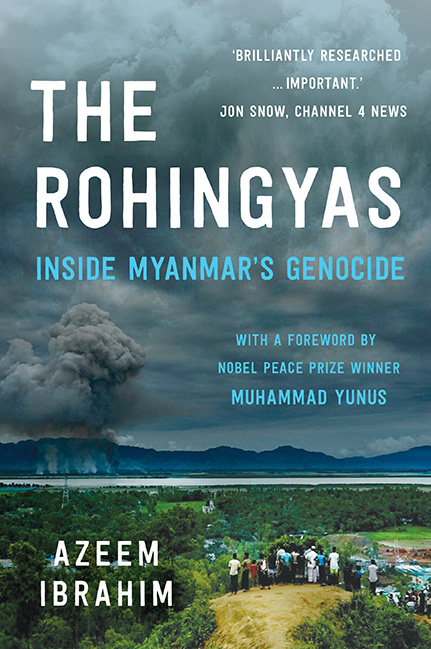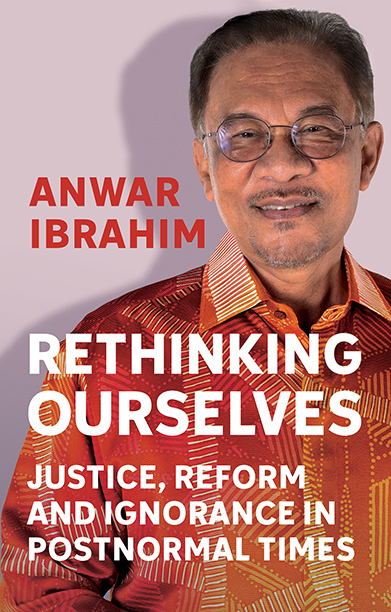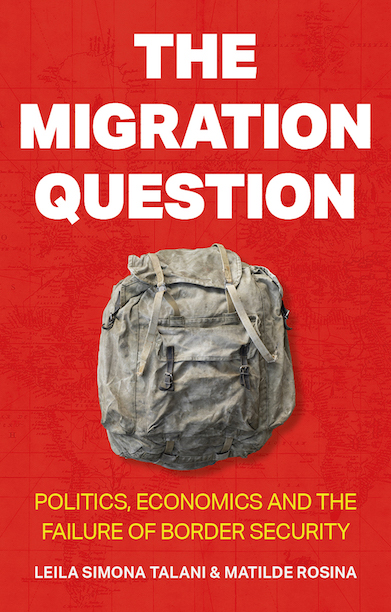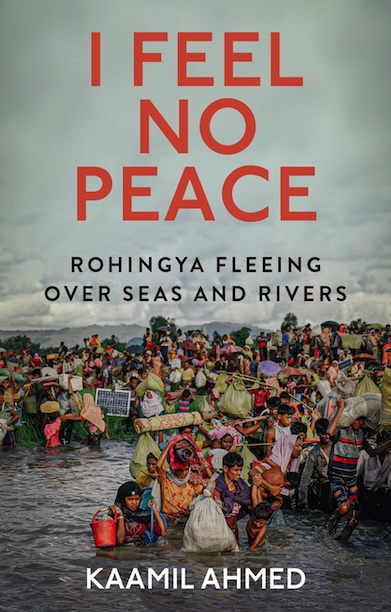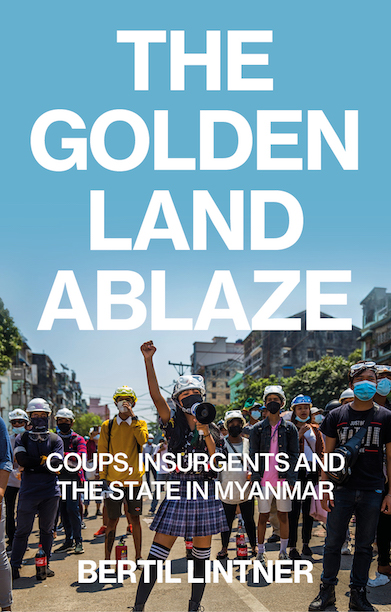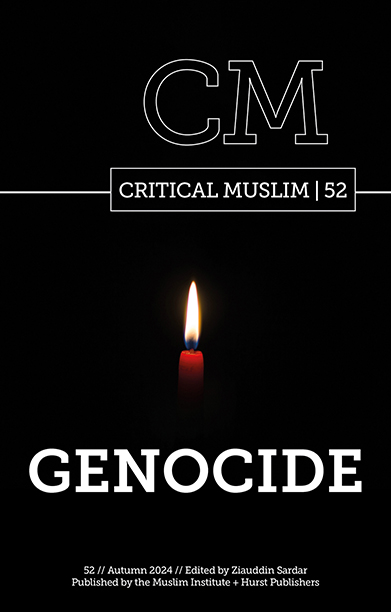The Rohingyas
Inside Myanmar's Genocide
Ibrahim’s searing book documents the slow-motion genocide of the Muslim Rohingyas and exposes the culpability of the Buddhist clergy in fomenting the religious cleansing of Myanmar.
REVISED AND UPDATED EDITION
Foreword by Nobel Peace Prize winner Muhammad Yunus
Description
According to the United Nations, Myanmar’s Rohingyas are one of the most persecuted minorities in the world. Only now has the media turned its attention to their plight at the hands of a country led by Nobel Peace Prize laureate Aung San Suu Kyi. Yet the signs of this genocide have been visible for years.
For generations, this Muslim group has suffered routine discrimination, violence, arbitrary arrest and detention, extortion, and other abuses by the Buddhist majority. As horrifying massacres have unfolded in 2017, international human rights groups have accused the regime of complicity in an ethnic cleansing campaign against them. Authorities refuse to recognise the Rohingyas as one of Myanmar’s 135 ‘national races’, denying them citizenship rights in the country of their birth and severely restricting many aspects of ordinary life, from marriage to free movement.
In this updated edition, Azeem Ibrahim chronicles the events leading up to the current, final cleansing of the Rohingya population, and issues a clarion call to protect a vulnerable, little known Muslim minority. He makes a powerful appeal to use the lessons of the twentieth century to stop this genocide in the twenty-first.
Reviews
‘The persecution of Rohingyas rests on a belief that they are outsiders … Ibrahim debunks these claims in his essential new book, claiming that Rohingyas were in Arakan well before 1784, and may even have arrived there before the Buddhist Rakhine. Ibrahim offers a credible genealogy that links Rohingyas to Indo-Aryan groups who arrived from the Ganges Valley as early as 3000 BC.’ — London Review of Books
‘This excellent book demolishes the Myanmar argument, shamefully echoed by Suu Kyi, that the Rohingya are “illegal immigrants.” Their ancestors may have been in the area when the Rakhine showed up around 900AD.’ — Nicholas Kristof, New York Times
‘[The book’s] claim on the reader’s attention is…its urgency and prescience’. – The New York Review of Books
‘[An] excellent book.’ —The Scotsman
‘Ibrahim dwells on the history of the Rohingya in order to give an account of how and why they have come to arouse such fear and loathing. … [his] analysis is excellent.’ — Literary Review
‘Ibrahim’s brilliantly researched book exposes the dark underbelly of this emerging state. Discrimination against minorities is rampant, but most acutely against the Muslim Rohingyas who are persecuted at the hands of the vast Buddhist majority. This important book exposes very great suffering that even Myanmar’s now elected leaders have little or no interest in combatting.’ — Jon Snow, Channel 4 News
‘Important . . .excellent . . . for those wanting to understand more about the situation of the Rohingya in Myanmar.’ — International Affairs
‘Very timely . . . especially important in challenging some of the myths surrounding Myanmar and the Rohingya crisis . . . a very welcome contribution to the current literature’ — LSE Review of Books
‘Azeem Ibrahim’s book is a well-researched treatise that answers the perplexity of a democratic regime’s discriminatory attitude towards certain ethnic and religious groups, by taking recourse in history. . . It is a must read for anyone who wishes to grasp an understanding of the reasons behind the fate of Rohingyas in Myanmar.’ — Insight Turkey
‘In Ibrahim’s The Rohingyas, the author wonderfully details how a historical canard is used as a pretext to completely erase them from Myanmar. The book also explores the fact that among 135 ethnic minorities, Rohingyas are the worst treated, stripped of all rights as citizens, depleted of wealth and property, pushed to the edge, and systematically exterminated.’ — Dhaka Tribune
‘This is a much-needed ethnography of a hitherto relatively ignored community of people. … [The Rohingyas] is refreshing for the way it moves from critiquing a current, ongoing crisis to suggesting a concrete solution to the problems the Rohingya face moving forward. Highly recommended.’ — CHOICE
‘In the last decade of the twentieth century the genocides in Rwanda and Bosnia could have been prevented by earlier active engagement by the international community. Azeem Ibrahim has issued a clarion call to protect a vulnerable and little-known Muslim minority in his compelling and thoroughly researched book. He makes a powerful appeal to use the lessons of the twentieth century to prevent a foreseeable genocide in the twenty-first.’ — John Shattuck, President of the Central European University, former US Assistant Secretary of State for Democracy, Human Rights and Labor, and author of Freedom on Fire: Human Rights Wars and America’s Response
‘In exploring and exposing the treatment of the Rohingya people of Burma Azeem Ibrahim has done great service to the truth about the terrible oppression which they are enduring, and has issued a call to all free people to secure international action to uphold their basic human rights.’ — Baroness Kinnock of Holyhead, Chair of the All Party Parliamentary Group on Burma
‘Time and time again, experience has shown that what minorities who live under the threat of annihilation need most is a voice that cannot be ignored. The Rohingyas promises to provide desperately needed awareness at a critical turning point in the history of Burma – awareness provided by a renowned and accomplished scholar and policy advisor, Dr. Azeem Ibrahim.’ — Steven Kiersons, Team Lead, Burma, The Sentinel Project for Genocide Prevention
‘Dr Ibrahim makes a strong case for naming the situation facing the Rohingya a genocide and convincingly shows the urgent need for immediate action to alleviate ongoing suffering as well as to arrest any escalation. He does an excellent job of dismantling the arguments made by some commentators that the Rohingya, as a group, did not exist in Myanmar in the past.’ — Dr Jonathan Saha, Academic Fellow in the History of Race and Empire University of Leeds
‘Exhaustively researched book does a valuable job of recording the group’s suffering in painful detail, and he is right to urge the world to pay even closer attention to what is happening in Arakan.’ — Christian Caryl, The National Interest
‘Ibrahim offers one of the fullest descriptions available of the current Rohingya crisis, retelling the narrative of the emerging genocide with force.’ — Joshua Kurlantzick, Senior Fellow for Southeast Asia at the Council on Foreign Relations in The Washington Monthly
‘Ibrahim’s book is a welcome contribution to our understanding of the ethnic cleansing taking place in Myanmar. Accessible and requiring no prior knowledge, it is required reading for anyone who wants to learn more about the plight of the Rohingya.’ — Muftah
Author(s)

Azeem Ibrahim is Research Professor at the Strategic Studies Institute, U.S. Army War College; Director at the Newlines Institute for Strategy and Policy; and a Foreign Policy columnist. His previous books are The Rohingyas: Inside Myanmar’s Genocide and Radical Origins: Why We Are Losing the Battle Against Islamic Extremism.
